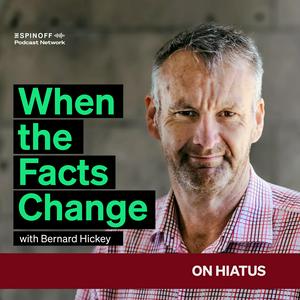Billions has been spent on the construction of Auckland’s City Rail Link, largely at the cost of taxpayers and ratepayers. The current Auckland council zoning rules, however, prevent the building of high-rise residential and commercial buildings at Mt Eden, Kingsland and Morningside stations. Sooner or later, something has got to give.
CBRE director of residential research Tamba Carleton joins Bernard Hickey to discuss the need for Auckland to grow up, and grow upwards, in order to make the most of it’s brand new tunnel.
Learn more about your ad choices. Visit megaphone.fm/adchoices


